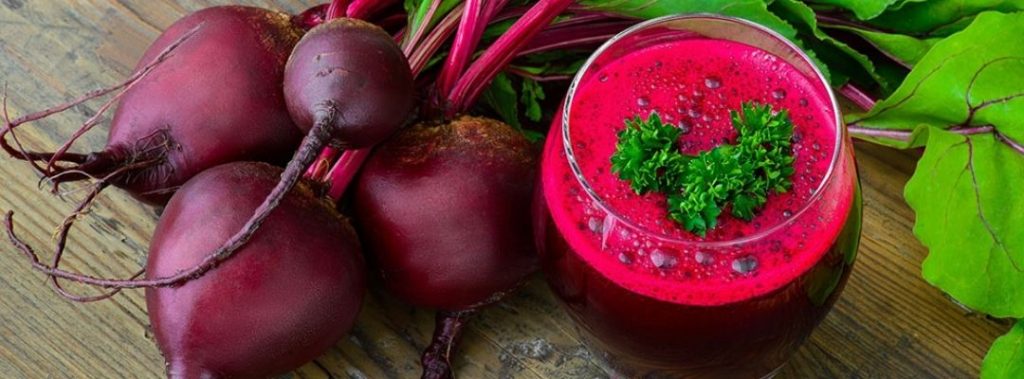From the Middle Ages, beetroot was used as a treatment for a variety of conditions, especially illnesses related to digestion and the blood. In recent years, the beetroot and beetroot juice, otherwise known as Beta vulgaris rubra, have attracted much attention as a health-promoting, functional food.
While scientific interest in beets has only gained momentum in the past few decades, they’ve been used as a means of natural medicine for thousands of years.
What Are Beetroot?
Beets are a part of the plant family called Amaranthaceae-Chenopodiaceae. Nutrition-rich Swiss chard varieties and other root vegetables are also part of this family, explaining why they share beets’ earthy but sweet taste.
Beetroot leaves were historically consumed before the roots ever were, even though today many people prefer to consume the sweet roots and discard the more bitter but very beneficial greens.
The beetroot taste is described as sweet, earthy and tender to eat. Grown in the ground, it’s related to turnips, swedes and sugar beet.
When compared with beet benefits, drinking beetroot juice provides a more sudden boost of ascorbic acid, vitamin E, carotenes, phenolic acids and phytoestrogens to the body. This helps improve cardiac and immunity function.
Drinking beetroot juice also introduces a greater concentration of potassium than when eating the vegetable. Beetroot juice provides more nutritious value than consuming cooked beets because the heat reduces the nutrient content.
Drinking beetroot juice is one of the best ways to detoxify the body — boosting the function of all bodily systems.
Benefits
1. Boosts Athletic Performance
Beet juice can increase the oxygen-carrying capacity of the blood and has also been found to reduce the amount of oxygen that muscles require in order to function optimally. This means that consuming beetroot provides an increase in energy, performance and stamina.
The ingestion of beetroot served as a practical and effective enhancing agent for endurance exercise at higher altitude.
2. Powerful Antioxidant
Beet juice has been considered a promising therapeutic treatment in a range of clinical diseases associated with oxidative stress and inflammation. Its constituents, most notably the betalain pigments, display potent antioxidant, chemo-preventive and anti-inflammatory activity.
Beetroot juice might serve as a useful strategy to strengthen internal antioxidant defenses, helping protect cellular components from oxidative damage. When certain types of oxygen molecules are allowed to travel freely in the body, they cause what is known as free radical damage.
Oxidative damage has been linked to health conditions like heart disease, cancer and dementia. This is why consuming high-antioxidant foods regularly is so important.
Betanin’s impressive antioxidant activity appeared to stem from its exceptional electron contributing capacity and ability to defuse highly reactive radicals targeting cell membranes. This suggests that beetroot juice and beetroot juice supplements protect against oxidative damage to DNA, lipid and protein structures.

3. Lowers Blood Pressure
Because beets are rich in natural chemicals called nitrates, through a chain reaction, your body changes nitrates into nitric oxide, which helps with blood flow and blood pressure. Beetroot consumption remarkably lowered systolic blood pressure (when heart muscles contract) and diastolic blood pressure (when heart muscles relax) over a period of 24 hours when compared with a water control group.
4. Aids Detoxification
Beetroot juice serves as a natural blood cleaner. It’s able to help the body detox and cleanse the blood of heavy metals, toxins and waste due to a compound called glutathione. Glutathione is essential for detoxification within the liver and other digestive organs.
Additionally, the fiber content in beetroot juice helps sweep the digestive tract of waste and toxins while restoring healthy and regular bowel movements.
It’s the betalains in beetroot that help to form glutathione — enabling the body to neutralize toxins and make them water-soluble, meaning they can be excreted through urine and flushed out of the body.
Beet juice is also a powerful tool for cleansing and supporting liver function, which has been shown in animal studies that evaluate the protective effects of the extract on liver damage. It’s important to keep the liver at optimal function because it filters our blood and is responsible for the largest percentage of detoxification in the body.
It works tirelessly to detoxify our blood, produce the bile needed to digest fat, break down hormones, and store essential vitamins, minerals and iron.
With impaired liver function, juicing vegetables has the added benefit of making the vegetables easier to digest and more readily available for absorption. Drinking beetroot juice for a liver cleanse also helps reduce acid levels in the body, helping create a more friendly pH balance.
5. Supports Cognitive Health
Drinking beetroot juice increases blood flow to the brain in older people, which may be able to serve as a natural way to stave off Alzheimer’s and fight the progression of dementia and other cognitive conditions.
The nitrates in beetroot juice are converted into nitrites by bacteria in the mouth. These nitrites help open blood vessels in the body, increasing blood flow and oxygen to places lacking in oxygen.
As we age, there are areas in the brain that become poorly perfused, meaning there is not enough blood flowing through those areas. This is what may lead to cognitive conditions like dementia.
6. Fights Diabetes
Beets contain an antioxidant known as alpha lipoic acid, which has been shown to lower glucose levels, increase insulin sensitivity and prevent oxidative stress-induced changes in patients with diabetes. Beetroot juice in controlling diabetes and insulin homeostasis.
Alpha lipoic acid “terminates free radicals, chelates transition metal ions, increases nutrients like cytosolic glutathione and vitamin C levels, and prevents toxicities associated with their loss.” This means that beetroot juice is able to reduce the oxidative stress that has the power to destroy healthy cells in the body.
Beet juice is also rich in fiber, so it keeps toxins and wastes moving through the digestive system properly. When the pancreas does not produce proper amounts of insulin, or if cells cannot properly process insulin, this results in diabetes.
High-fiber foods, like beetroot, help slow down glucose absorption — giving the body time to process the insulin.

7. High Source of Folate
Numerous sources show that folate consumption is important because it helps the body make new cells, specifically by playing a role in copying and synthesizing DNA. A folate deficiency can cause anemia (poorly formed red blood cells), a weakened immune function and poor digestion.
Pregnant women, women who are breastfeeding, people with liver disease, people who are on medications for diabetes, alcoholics and people on kidney dialysis are most at risk of a folate deficiency. High-folic acid foods, like beetroot, lentils, spinach and chickpeas, help ensure a healthy pregnancy, fight to prevent cancer and support cardiovascular health.

